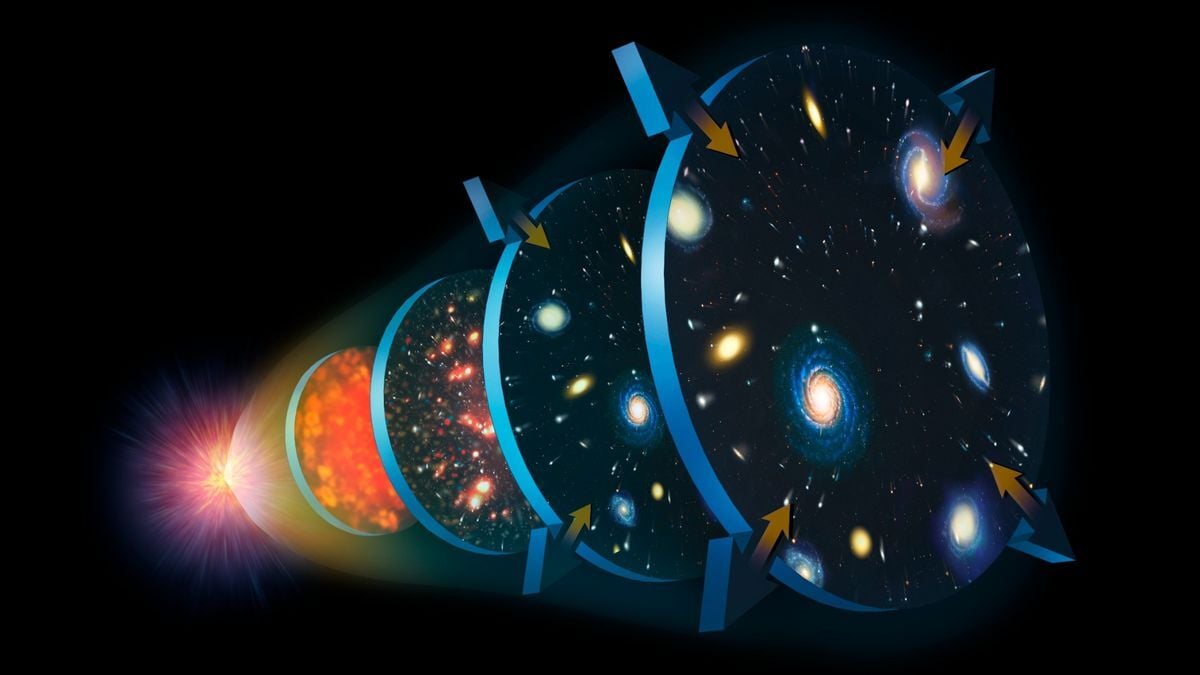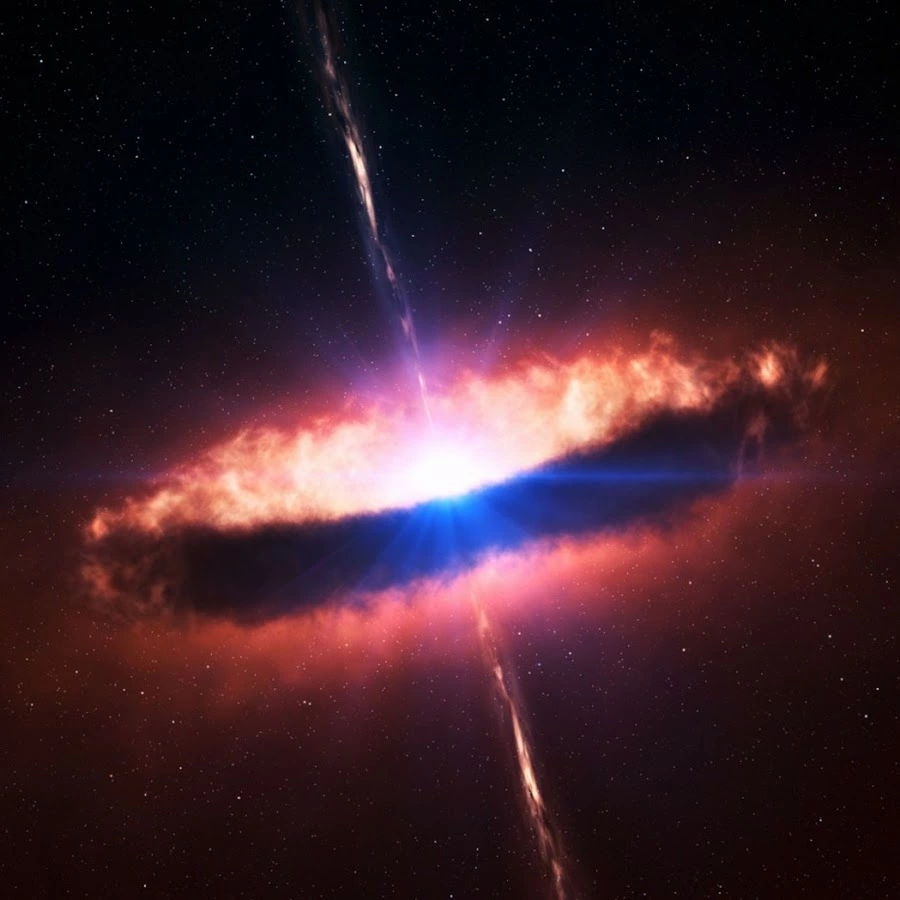No flying machine will ever reach New York from Paris.
One of the Wright brothers said that. It’s actually my favorite quote because it always reminds me we have no idea what the fuck we’re wrong about.
And 100 years later, in one generation, humans land on the moon.
Scientists in the 1800s also proclaimed we figured everything out and science was completed.
At a computer trade show in 1981, Bill Gates supposedly uttered this statement, in defense of the just-introduced IBM PC’s 640KB usable RAM limit: “640K ought to be enough for anybody.”
That quote was in the context of the 1981 personal computer market, and in that context is correct.
It’s like a game company CEO saying 12GB of video ram is enough in 2024 so we don’t all need an RTX 4090.
I think the context was for computers at the time.
That one is apocryphal if I remember correctly, but even if he did say it, at the time it was pretty much true.
deleted by creator
yo… what
-Science
Peer review is “Hey. You seeing this shit?”
“Oh no… Oh no… Oh shit… RUUUUUUUUUN!!!”
I never though I’d see a resonance cascade, let alone create one!
You’ll get the noble prize for this posthumously!
When I first began learning HTML (way before CSS and the modern web), my most engaged moments were when things broke. Way more satisfying learning how to fix them than having it work right away. What a great observation / comment.
Dave Jones of the EEVblog always says to beginners “I hope your project doesn’t work.” He thinks it’s a much better learning opportunity that way.
This is amazing news. It’s like being shown that Neutonian physics are wrong, so now we have the ability to come up with a better model, then massive advancements in technology can occur.
I’d like them to look for repeats of galaxies. Galaxies that may be the same but slightly different or in different parts of the universe. If the universe was its own black hole we might see like a sort of kaleidoscope effect
The trouble with that is the difference in time. Since the light has to travel such a vast distance, multiple images of the same galaxy will show different stages of maturity. Even the stars will have been recycled. It would be extremely difficult, if not impossible, to ever demonstrate that two galaxies separated by billions of light years are actually the same galaxy in a curved Universe.
I believe that would be a Torus-shaped universe that could produce that effect, basically a donut where space loops back in on itself. I think it’s something that’s been considered, though it sounds as if there’s no evidence for or against that idea, and it’s not considered likely.
My money is on a dodecahedron.
Neutonian physics are wrong
Dangerous way of putting that since we have so many easily weaponized idiots who will carry that water, a better way to say it would be “our understanding of neutonian physics is incomplete at the moment”
I agree, it is more accurate that way. English is not my first language, so I missed that detail. In South Africa, we also don’t have a significant anti-science movement, so it does not always occur to me naturally. The scientific approach is generally well respected and understood here.
“The most exciting phrase to hear in science, the one that heralds new discoveries, is not ‘Eureka!’ but ‘That’s funny…'” --Isaac Asimov
TIL Columbo was the ultimate scientist.
“Oh, just one more thing…”
The scientific spirit at work!
We have a very limited view of the universe so it’s no surprise that our theories are often wrong or incomplete. The beauty of science is that when a theory proves inadequate, it gets replaced with a more complete one.
yeah, but it’s always a shitshow when someone brings alternate theories to the big bang. it’s almost like back in those days when they burned people for suggesting the earth may be slightly less flat than expected.
Don’t dare question dark matter in front of a physicist.
Dogulas knew:
I always said there was something fundamentally wrong with the universe.
– Arthur Dent, the Hitchhiker’s Guide to the Galaxy Radio Series.
deleted by creator
Maybe Maybe there’s something seriously wrong with the Universe? Why is it always US who are wrong?
The universe is, frankly, a complete shitshow.
I’ve heard this has made many people very angry and is widely regarded as a bad move
I mean it’s got some valid points but let’s not get ahead of ourselves.
I like to think that whenever we discover something new, the universe just got an update and we discovered the patch notes.
Over and over again. That scope is really opening things up.
It was the same for the Hubble telescope back in the day (and still!)
It seems odd to me that the universe would be expanding at the same consistent spherical shape. I’ve seen plenty of explosions and they never look like that. The big bang, which consisted of literally all matter in the universe would surely be no different.
Except it’s not that they are finding the expansion rate is different in some directions. Instead they have two completely different ways of calculating the rate of expansion. One uses the cosmic microwave background radiation left over from the Big Bang. The other uses Cepheid stars.
The problem is that the Cepheid calculation is much higher than the CMB one. Both show the universe is expanding, but both give radically different number for that rate of expansion.
So, it’s not that the expansion’s not spherical. It’s that we fundamentally don’t understand something to be able to nail down what that expansion rate is.
It’s because CMB stopped for coffee, obviously.
(That was a great explanation, btw.)
It just wraps around, like a videogame. Duh…
Just to confirm, the expansion is the same in different directions under both methods of measuring?
Under the CMB method, it sounds like the calculation gives the same expansion rate everywhere. Under the Cepheid method, they get a different expansion rate, but it’s the same in every direction. Apparently, this isn’t the first time it’s been seen. What’s new here is that they did the calculation for 1000 Cepheid variable stars. So, they’ve confirmed an already known discrepancy isn’t down to something weird on the few they’ve looked at in the past.
So, the conflict here is likely down to our understanding of ether the CMB or Cepheid variables.
I wish the article had broken it down the way you did. Thanks!
Ah ok. Thanks for the correction.
The only thing spherical is the visible universe from earth that we can see. Both in time and distance. Due to the expansion of space that volume is increasing.
The entire universe could be infinite and take on any number of infinite shapes. Our local universe could be completely different from the rest of the universe and we’ll never be able to know…it’s wild.
Recent experiments trying to determine what the curvature of space-time is in the visible universe has concluded that it’s pretty much flat But it’s entirely possible that we’re just on a very very very large (infinite?) curved surface of spacetime that just looks flat to us…
I would bet on it in fact. It makes logical sense to from my perspective.
I’m no way an expert in this, but I’ve been told it’s wrong to think of the expansion of the universe like an explosion where everything moves away from a single point, but rather that the space between each object is expanding, comparing it to the way the surface of a balloon expands (if you were to paint multiple dots on the surface of a balloon they would all move away from each other when you inflate the balloon), though I like to think of it as yeast bread expanding since that’s 3d.
Have you considered the universe may actually be a torus instead of a sphere, eg: bagel-verse?
Dodecahedron. Fight me
Yes that sure is an option, but it doesnt fit in my pastry-centric theories of the universe.
Spherical? We don’t know if the universe is of finite size.
As far as we know, it could just as well be infinite, and the expansion happens everywhere.
Everything is relative so the only thing we know is that the distance between galaxies increases. But we don’t know if there’s a “border” of the universe or not.
I think it gets more spherical the larger it gets. The initial explosion from nukes are fairly spherical if you look at the old film. https://www.npr.org/sections/pictureshow/2010/09/28/130183266/abomb
One of the images from that slideshow begs to differ.

The big bang (if it is still a valid theory) would have been unlike any explosion you have ever witnessed. The big bang was not an explosion of only matter, since time and space were both created during this event as well.
Really, calling it an explosion is not right in the first place. It’s one of those unfortunate cases of bad naming in science, another being ‘The God Particle’ (which was originally supposed to be The Goddamn Particle.) Physicists prefer using the word ‘expansion.’
There’s some interesting ways of understanding “dark energy.” This is just one.
I feel (intuitively (which is almost certainly wrong)) that it’s expanding like a fluidic wave. Think lighting a gasoline puddle on fire.
Good riddance, the answer can never be too simple.
The human need for ‘constants’ may already be too simple. Gravity for example is treated as a constant value in Physics but is actually variable.
I might have missed something, but AFAIK, gravity is the same everywhere. Bigger things, bigger gravity, sure, but two equal things in different locations don’t have different gravitational attraction
deleted by creator
Your understanding of what constitutes “Physics” (tip: it’s not a bunch of kids in a classroom) tells me that we can safely ignore your opinion.
The
cakeBigBang is a lie.
original source :
https://iopscience.iop.org/article/10.3847/2041-8213/ad1dddsee also :
https://en.m.wikipedia.org/wiki/Hubble’s_law
Hubble tension
In the 21st century, multiple methods have been used to determine the Hubble constant. “Late universe” measurements using calibrated distance ladder techniques have converged on a value of approximately 73 (km/s)/Mpc. Since 2000, “early universe” techniques based on measurements of the cosmic microwave background have become available, and these agree on a value near 67.7 (km/s)/Mpc. (…)
(…) The most exciting possibility is new physics beyond the currently accepted cosmological model of the universe, (…)Can someone give me the spark notes I started reading but I’ll never get through that or probably even understand all of it
As I understand it, there are two measures of cosmic distance/expansion rate in which we are pretty confident.
One is using supernovas as a measure. Since one kind of supernova has very particular characteristics, it is easy to calculate the distance. It is like knowing that everyone has the same kind of candle, if you see a bunch of lights around you, you could make certain assumptions about how far they are from you by how bright they are. Also, with more precise measurements, we can use the doppler effect to know how fast they are moving. We have observed the area around or Galaxy and have come up with a very precise measurement for how fast the universe is expanding.
The other measurement is by looking at the cosmic wave background. This is the “first” thing we are able to see after the big bang. I don’t really understand the details of this one, but scientists have also been able to calculate the expansion rate of the universe very accurately with this radiation.
As we have done more experiments to measure these two numbers, instead of converging on the same number, the results are actually diverging. Recent results have even made it so the error bars no longer overlap.
So, we have some big questions -
- Are our measurements wrong? There are no strong candidates for alternative understandings of how we measure things, so we don’t really know how.
- Are the expansion rates at the beginning of the universe and current times different? Maybe, but again, we don’t have any theories for why.
- Does the Universe expand at different rates in different places? Maybe, but again, we don’t have any strong candidates that we can test.
All of this is called the Hubble Tension. It is probably one of the biggest questions in cosmology currently.
Thanks this is both an uncomfortable and exciting thing to read.
Basically,
Everything you know is wrong.
Black is white, up is down, and short is long
And everything you thought was just so important doesn’t matter. Everything you know is wrong. Just forget the words and sing along. All you need to understand is, everything you know is wrong.
It’s simple, imagine you’ve got two smart friends that both have an opinion about a TV show you didn’t watch - you can’t tell who is right but the fact they disagree suggests they might be wrong when they say you can’t have flying cars and time travel.
Do all parts of a growing, living creature expand at the same speed?
In America, our guts grow way faster than our brains, bc that’s where we do most of our thinking. :-D
Ohhh that makes sense! You have some REALLY smart people over there!
Damn straight - it has it right there in our flag (the red is bacon 🥓)!

Holy fucking shit. How have I never seen that version of your flag before? That other one is so boring why isn’t this one flying everywhere?
Bold of you to presume that it isn’t!? :-P
And if you think that’s something, wait till you see our history books:

And our newspapers:

(save us from ourselves?)
Well damn! No wonder you guys are so patriotic! I think I might be a bit jealous of your freedom and your news industry.
(Wish I could help 😞 I’m just up here in this other little North American country. The really cold one. Just wishing someone saves you from yourselves before that stink moves too far up and gets embedded in the carpet. Unfortunately we’ve been getting more and more whiffs of it in the past couple years. We may need help too.)
Yeah, it’s spreading all over the world. Again. Except this time we seem to be for rather than against it, for some reason? :-(
Did you know that because your feet are closer to the gravitational center of the earth your head ages faster than your feet?
I did, I have no grey hairs on my feet.
Gonna go ahead and add “how much farther did my head travel than my feet due to the curvature of the earth” to my list of weird statistics I want an answer to
It would take something like a million years for your head to age more than a second. It’s a fun thing to tell people though lol
A bat should be less affected by this uneven aging due to the whole sleeping upside down thing. They still spend some time upright so it balances out a little better than what you’d see with most of us who generally stay somewhere between prone/supine and standing up throughout the day.
Anyone here an expert on Scalar-Tensor-Vector Gravity (STVG), Tensor-Vector-Scalar Gravity (TeVeS) or f® gravity?
Yay!
From my limited understanding, the discrepancy comes from the two ways to measure the universe’s expansion: calculation from cosmic microwave background and calculating a cepheid variable, which uses pulsating stars (pulsars?)
Isn’t it more likely that one, or both, ways of measuring are wrong? As in, they’re not useful for measuring the universe’s rate of expansion?
Isn’t it more likely that one, or both, ways of measuring are wrong? As in, they’re not useful for measuring the universe’s rate of expansion?
Now, scientists using the James Webb and Hubble space telescopes have confirmed that the observation is not down to a measurement error.
I’m trying to understand the distinction you are making. Could you elaborate?
Not a scientist but the article seems to mean that they checked that the tools themselves had no defects giving incorrect measurements.
This comment seems to be questioning the methodology of how we measure the rate of expansion so tackles a different aspect of the conversation.
But that’s about as much as I can contribute haha
Pretty much this. In a (hopefully) more direct metaphor, are we sure we’re using a ruler to calculate the length of a line, and not using a ruler to calculate the temperature of a paper?























